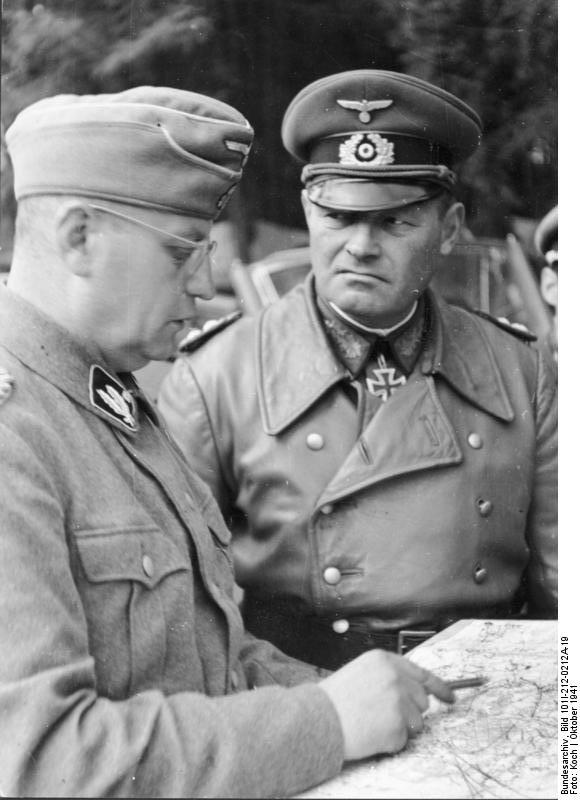Erich Hoepner
Colonel-General Erich Hoepner was a senior figure in the German army most famous for his role in the attempted assassination of Adolf Hitler - the July Bomb plot - during World War Two.
Born on 14 September 1886, Hoepner fought in World War One. He was horrified by trench warfare and at the end of the war became interested in mobile warfare, particularly tanks. He was promoted in 1938 to the rank of major general and became commander of the 1st Light Division.
Hitler was held in poor esteem by some senior army figures generals, and even before the start of World War Two Hoepner became entangled in plots against Hitler. General Ludwig Beck planned a coup in 1938 to coincide with the Munich Conference. Hoeper’s allotted job was to quash the SS after Hitler had been arrested and shot. However this plot never got off the mark because British Prime Minister Neville Chamberlain unexpectedly appeased Hitler during the conference.

Hoepner was made lieutenant general in 1939 and became commander of XVI Corps. The XVI Corps were involved in the March 1939 occupation of Czechoslovakia and in the invasion of Poland in September 1939.
Hopner commanded the 4th Panzergruppe for ‘Operation Barbarossa’, Nazi Germany's invasion of the USSR. They were heavily involved in the original surge through Russia, which allowed the German army to come within 20 miles of Moscow.
The Germans were unsuccessful in capturing Moscow, so Hoepner thought that his men - who were suffering in the harsh Russian winter - should withdraw and have time to recover. Hoepner firmly felt that this would rejuvenate his forces and put them in a much better place to re-attack Moscow. Hitler refused to consider this proposal, especially once he had declared to his generals that Moscow was “merely a geographical concept”, and discharged Hoepner from the army in a dishonorable fashion.
After being let go, Hoepner took part in the July Bomb Plot to assassinate Hitler in 1944. After the plot’s failure, the Gestapo arrested and tortured Hoepner. He was put on trial, discovered guilty and sentenced to death by hanging. He was executed at Plötzensee Prison, Berlin, on 8 August 1944.
See also: Lord John Gort
MLA Citation/Reference
"Erich Hoepner". HistoryLearning.com. 2026. Web.
